
IGF 2023
Media Coverage
DAY 0 - SUNDAY
Norway: "In 2003, the internet was in its infancy. The speeds we were talking about then were a fraction of those available and the reach of the internet was nothing like what it is today.” — Sigbjørn Gjelsvik, Minister of Local Government and Regional Development.
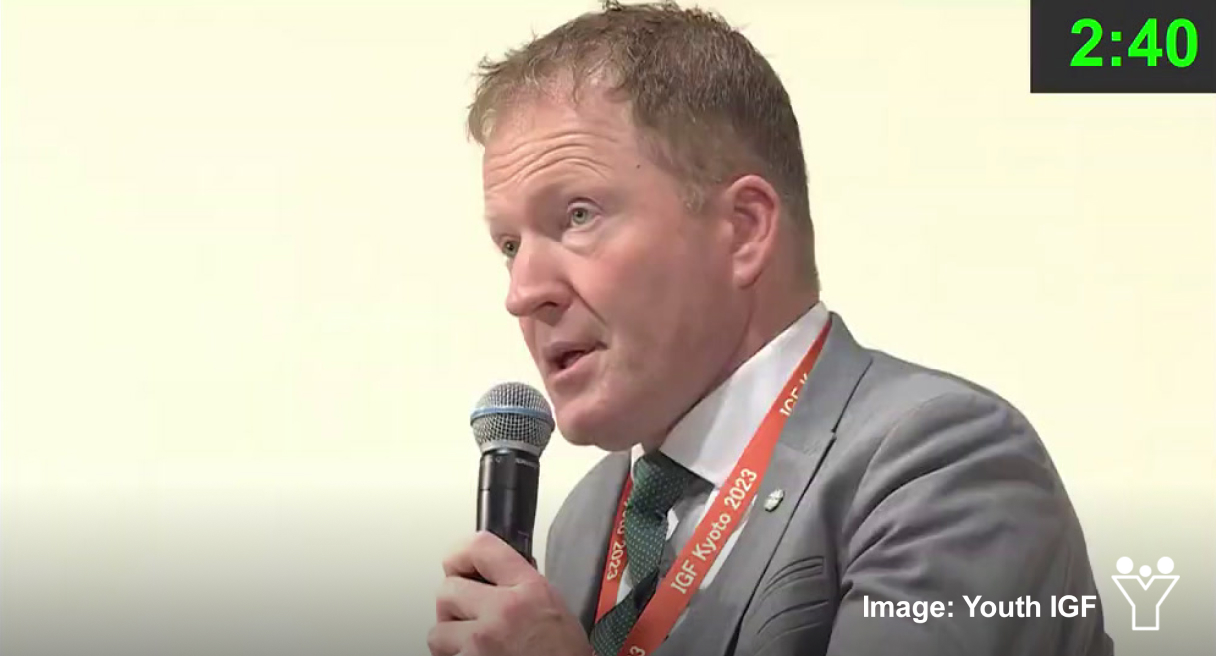
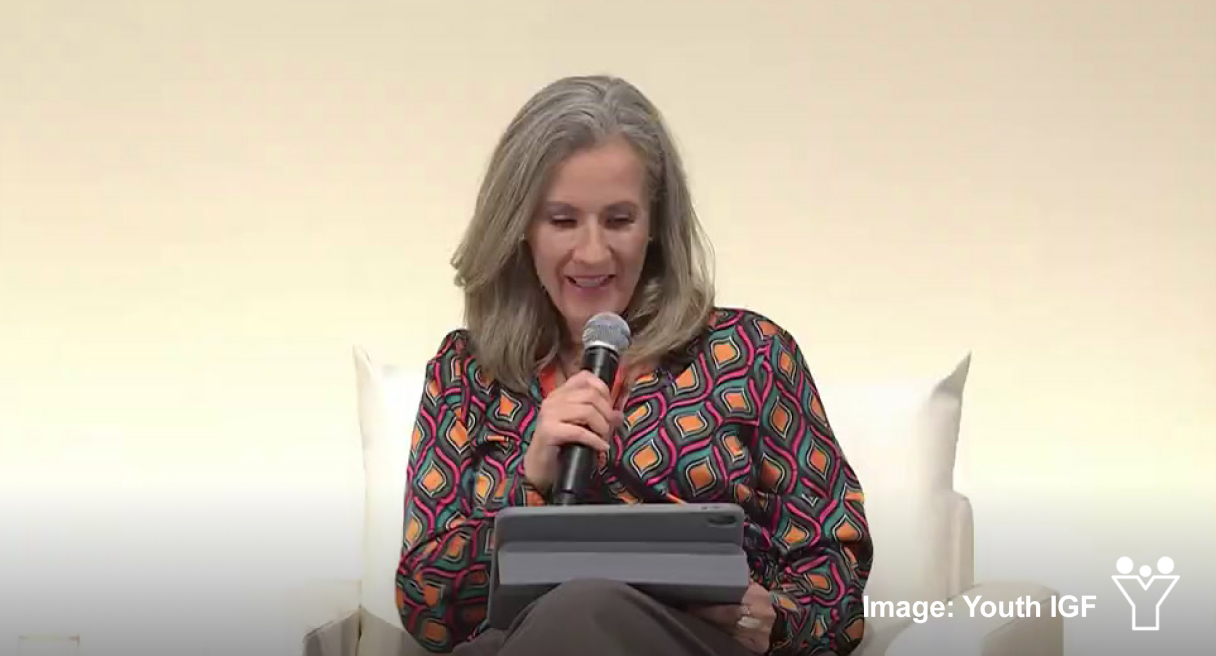
ICC: "We have got over 5 billion people on the internet today and billions of devices. This has all happened in the last 20 years. Look at what happened in terms of consumer technologies, smartphones and now AI, a product that happened less than a year ago." — Maria Fernanda Garza Merodio, Board Chair, International Chamber of Commerce.
Sri Lanka: "In Sri Lanka , we are working on an internet safety bill to deal especially with privacy and cybersecurity. It will be passed soon in parliament to cater for and protect millions of new users who are getting connected." —Sameera Wijerathna , Head of Digital SME, Dilaogue Axiata PLC.

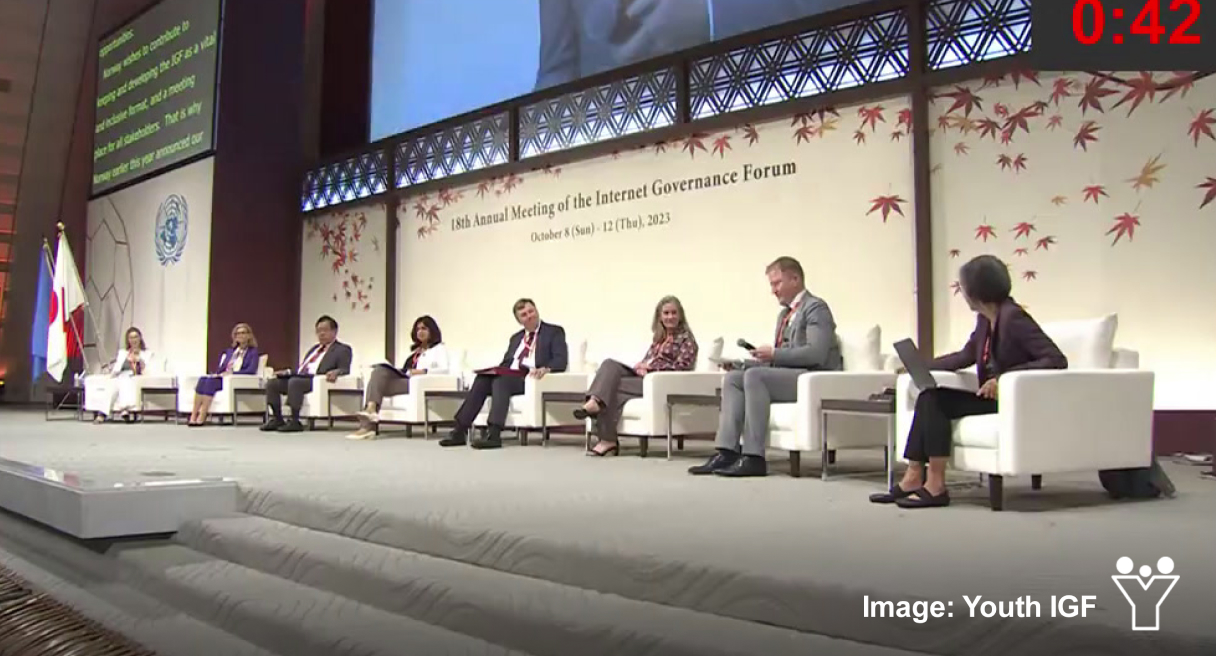
Japan: “6% of humans were accessing Internet in 2003. Now it’s about 70% so that’s great speed of deployment of the Internet. It is a lot about universal access to computer network (...) Digital Data and AI are based on those infrastructures.” — Prof. Jun Murai, Keio University.
UN: “In many ways, WSIS was actually ahead of its time developing a comprehensive framework that is still absolutely valid today even when we look at new things like generative AI. The multi-stakeholder consultative process and community spirit is still strong.” — Doreen Bogdan-Martin, Secretary General, ITU.
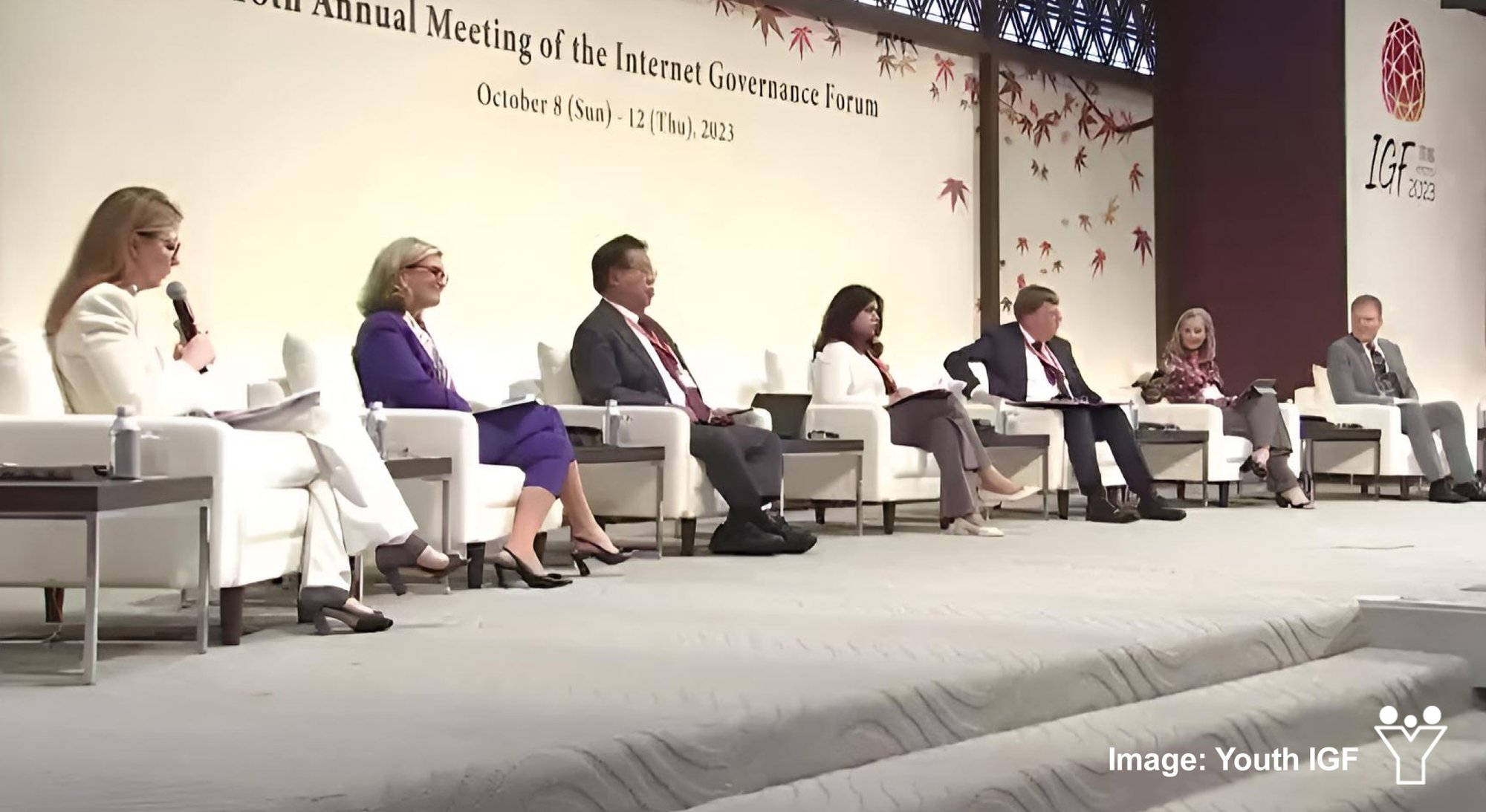

DNS: “In the case of increased and increasing government regulation of the internet, we’ve to work better together as private sector, technical community and civil society to present a united front that supports multi-stakeholder model itself but also outputs and outcomes that help promote trust.” — Keith Drazek, Director of Policy, Verisign.
US: “We cannot emphasize enough the importance of inclusivity and affordable connectivity because if you don’t have connectivity, you basically don’t have anything, you don’t have the internet.” — Barbara Wanner, Vice-President Digital Policy, US Council for International Business.


INTA: “One of the principles is trust and privacy which is very important. In terms of data privacy, as an example we should prioritize a process within which we ensure there is a mechanism in case someone interfered on intellectual property and consumer rights.” — Charles Shaban. International Trademark Association.
UK: “Governments are saying it is important now to get a much better grip on tackling the harms, risks and growth of all negative stuff that’s online. DFI is a valuable opportunity and platform for collaboration to involve private sector much more assertively to work with gov’ts on those particular priorities.” — Mark Carvell, Internet Governance Consultant.

DAY 1 - MONDAY
.jpg?width=1216&height=656&name=10(3).jpg)
Saudi Arabia: "I strongly believe that technology should not be regulated in the same legacy regulatory practice that we are used to. We can’t have a rigid regulation so definitely we need to prepare for innovative regulation methodologies like having policy labs within innovation centers." — Latifa Al-Abdulkarim, MP, the Shura Council, Saudi Arabia.
EU: "If youth do not engage, they do not care and it is also the duty of institutions and society to give them instruments to be involved, but if they refuse to do it then others will do in their place. There should be more momentum around digital citizenship and digital rights and development of global understanding on the Internet.” — Brando Benifei, Member of European Parliament.
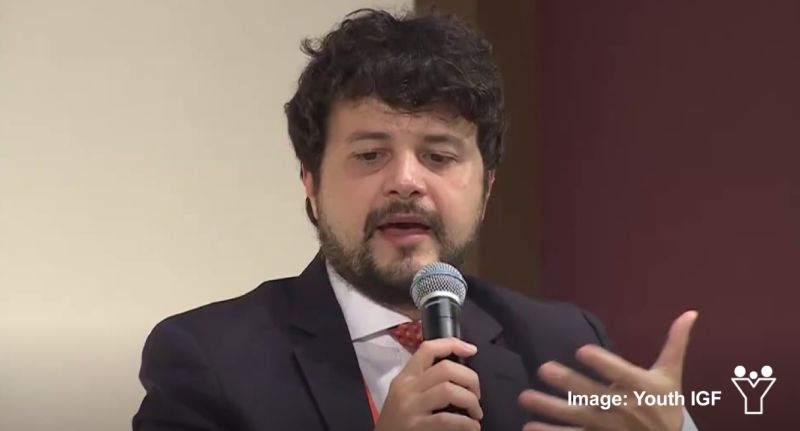
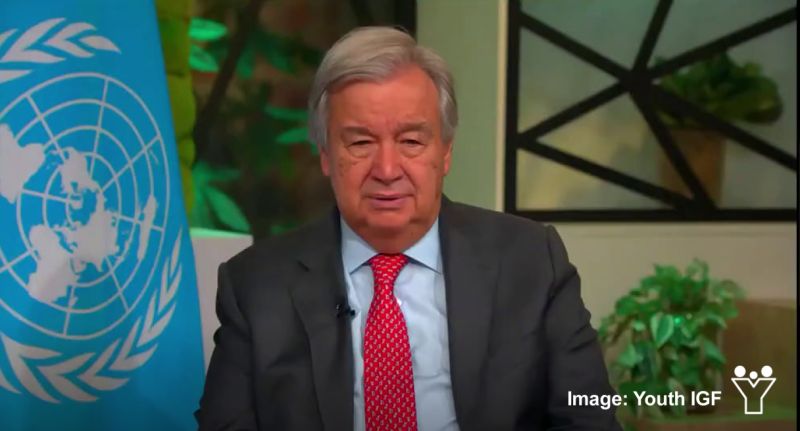
UN: "Fundamentally we need to reinforce the human rights and human centered approach to digital cooperation. It is imperative that the Internet, including the physical infrastructure that underpins it, remains open secure and accessible to all." — António Guterres, United Nations Secretary General.
UN: "We call for closer collaboration and partnership among stakeholders, greater digital innovation for accelerating SDG implementation and of course the technical assistance to the global south to bridge the digital divide. Together let us liberate the inclusive multi-stakeholder approach of the Internet Governance Forum to build the internet we want." — Junhua Li, Under-Secretary — General for Economic and Social Affairs, United Nations.
.jpg?width=800&height=431&name=photo_2023-10-11_01-59-29%20(2).jpg)
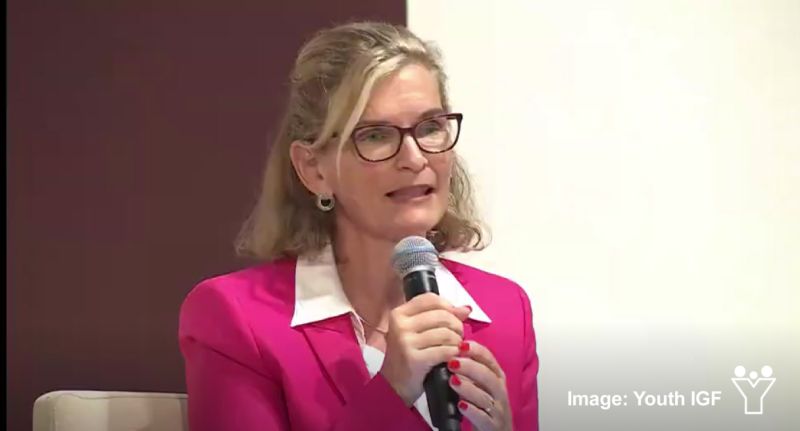
ITU: "You can't be part of the AI revolution if you are not part of the digital revolution. So this is a reminder of the 2.6 billion people that are still offline today, that are excluded." — Doreen Bogdan-Martin, Secretary General, ITU.
Japan: "My government believes we should contribute to this discussion. We believe that the Internet must remain open, free, global, interoperable, secure and trustworthy. A free and un-fragmented Internet is essential for solving humanity's challenges such as development, health and security as well as for further development of human kind." — Fumio Kishida, Prime Minister of Japan.
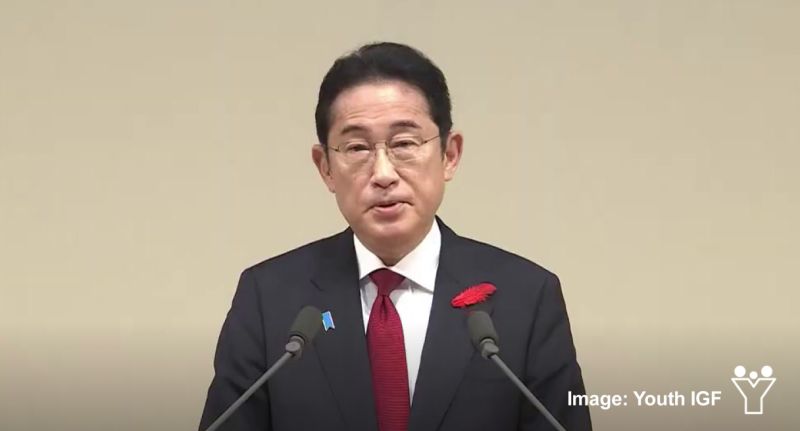
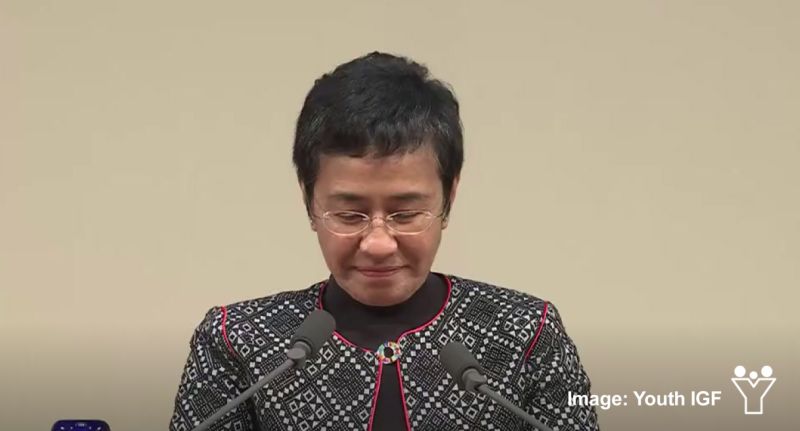
Maria Ressa: "Today truth is under attack, we are engulfed in an information world where the bullets of disinformation, the bullets of information operations spread like wildfire to insecure and change reality." — Maria Ressa, 2021 Nobel Peace Prize Winner.
Vint Cerf: "At the moment we are mesmerized by AI, machine learning and large language models but I believe that that is in some sense a distraction. What we should be most concerned about is how these systems are being used. What are the effects and side effects of their use?" — Vinton G. Cerf, one of "the fathers of the Internet".
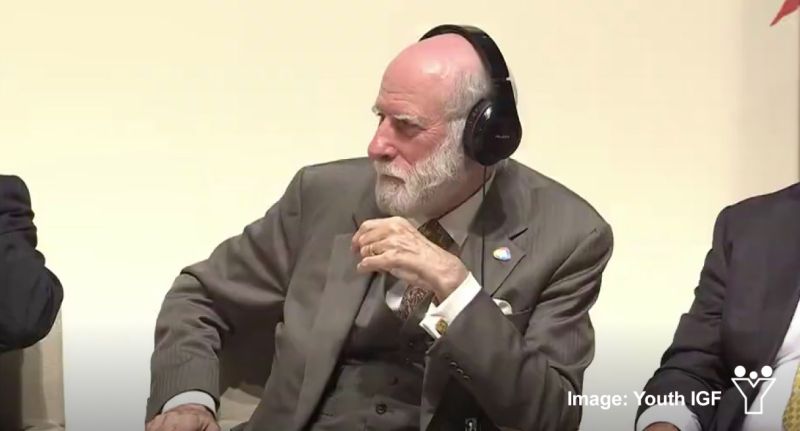

Ghana: "We need to see more action from the Pan-African Parliament and the African Union taking collective stand on African Union data policy frameworks to ensure that as a continent we have a collective voice to then bring the bitech players to the table to have a conversation." — Samuel Nartey George, MP, National Democratic Congress, Ghana.
Nepal: "When crypto currency came up, the government in Nepal basically banned it because we didn't understand what it was. We didn't understand its volatility. We just didn't understand blockchain technology. So there are a lot of tools available to deal with rapidly changing technology, but I think the key is to remain proactive and remain connected with researchers, academia, with the Innovators to understand what's coming up on the horizon." — Sumana Shrestha, MP, House of Representatives, Nepal.
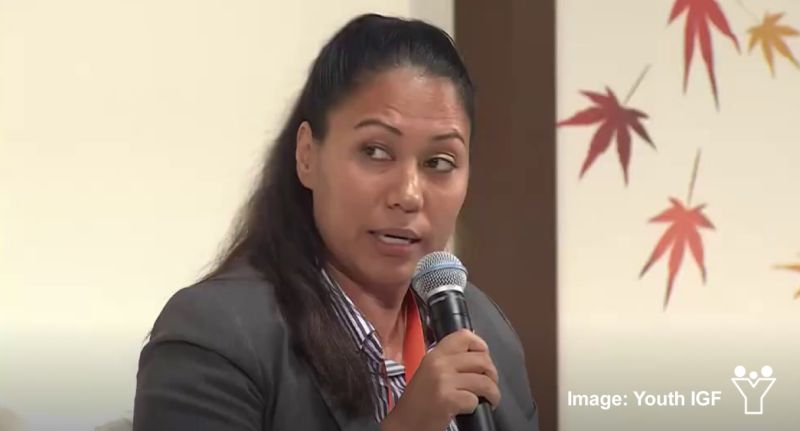
DAY 2 - TUESDAY
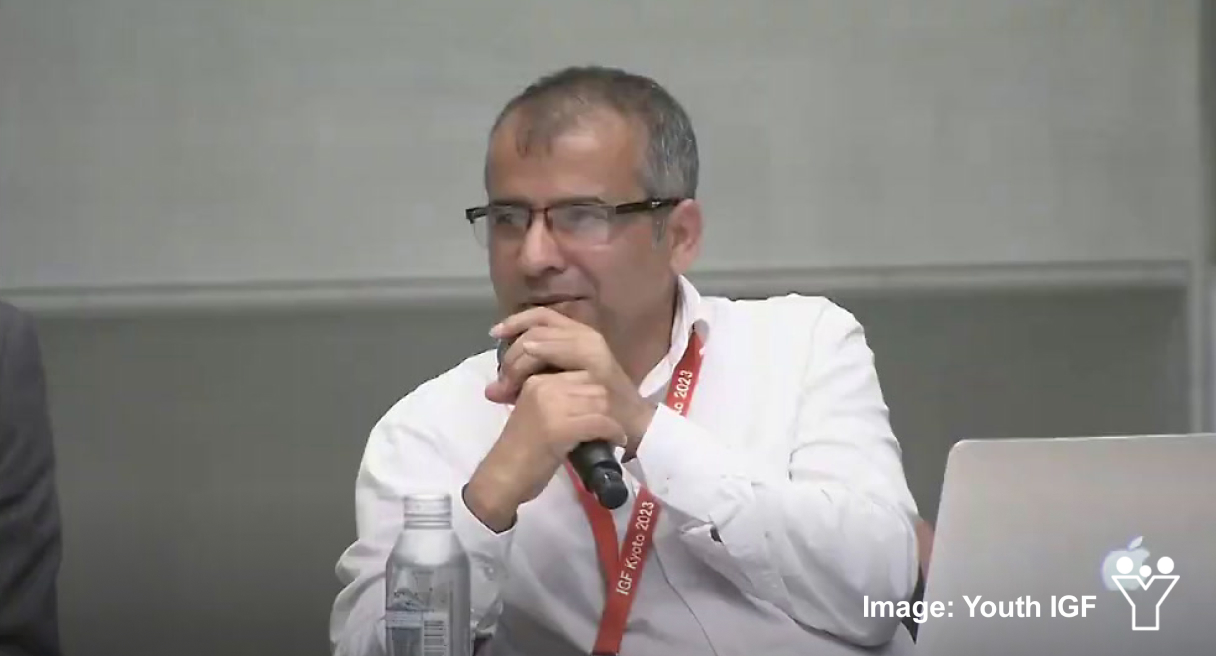
Nepal: "AI has given very significant opportunity for all of us. It has now become a big word though it is not a new one, but recently it has become a very popular tool in technology." — Babu Ram Aryal, lawyer and consultant.
Zambia: "We have seen an increase in crime that are technology enabled, crimes that you wouldn't expect could happen, but in the end we see most of them are enabled by AI and especially with the coming of ChatGPT - data and other AI based tools online. This has posed a serious challenge to law enforcers on the African continent and most developing countries." — Michael Ilishebo, Cyber Analyst, Zambia.
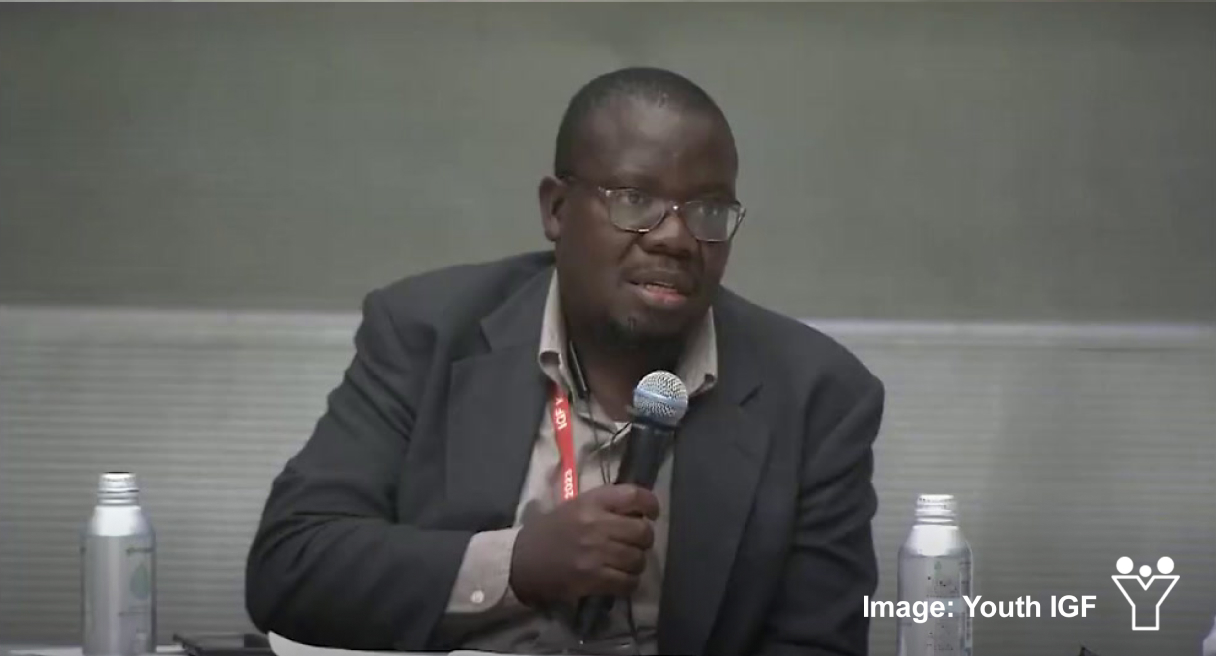
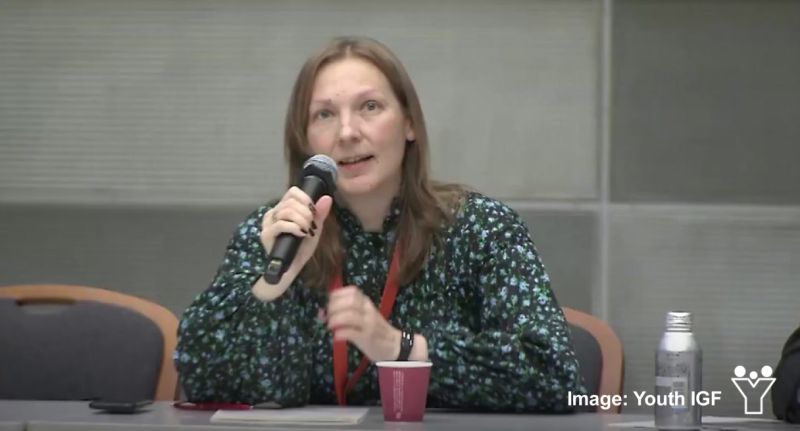
Tatiana Tropina: "I do believe that in a way, the threats and opportunities that AI brings for cybersecurity or security in general, might be almost the same everywhere. The question is, how do we protect people and those systems from harm, while not stifling innovation? We have to address the issue of deep fakes and here it goes beyond cyber security, it goes to information operations, into the field of national security." — Dr. Tatiana Tropina, Assistant Professor, Leiden University.
Meta: "I think that the challenge with generative AI is that we get a little bit stuck on the content and we need to change the conversation about how do we detect bad behavior. Second thing we notice is because of generative AI being the hype cycle, it becomes an easy target for phishing and scams because all you need to do is say, " hey click on this to access ChatGPT - data for free" and people think it's cool, they are more willing to get duped into those kinds of sort of hype cycles, which is common with things like AI and other things." — Sarim Aziz, Director of Public Policy, Meta's South East Asia.
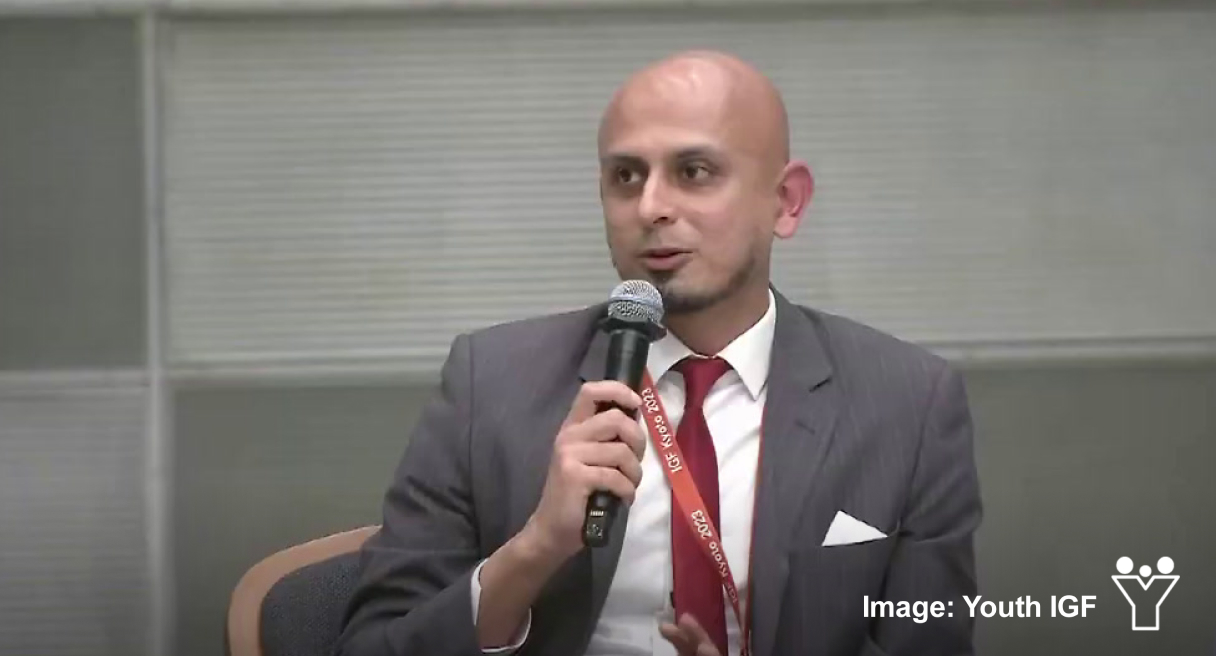
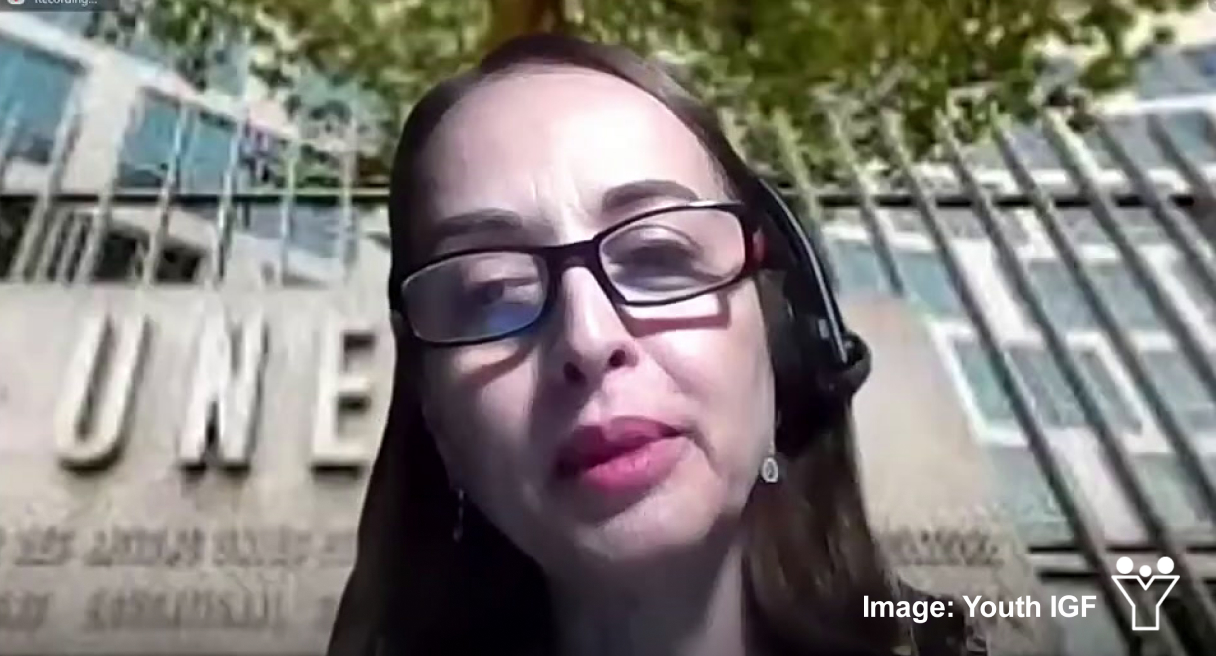
UNESCO: "In UNESCO we work with what we call the Rome principles for internet development in which the internet should be human rights based, open to all, accessible by all , stakeholder led, and the user experience fragmentation is very much about the explicit decisions that reduce openness and accessibility which then has consequences for human rights." — Marielza Oliveira, Director, Communications and Information Sector's Division for Digital Inclusion, UNESCO.
ICANN: "When it comes to user experience, there is nothing regional or national. Internet users should be all equal. So in those terms we need to have a global understanding of what is the minimum of what is known or what should be a user experience." — Bruna Martins dos Santos, Chair Non Commercial Stakeholder Group, ICANN.

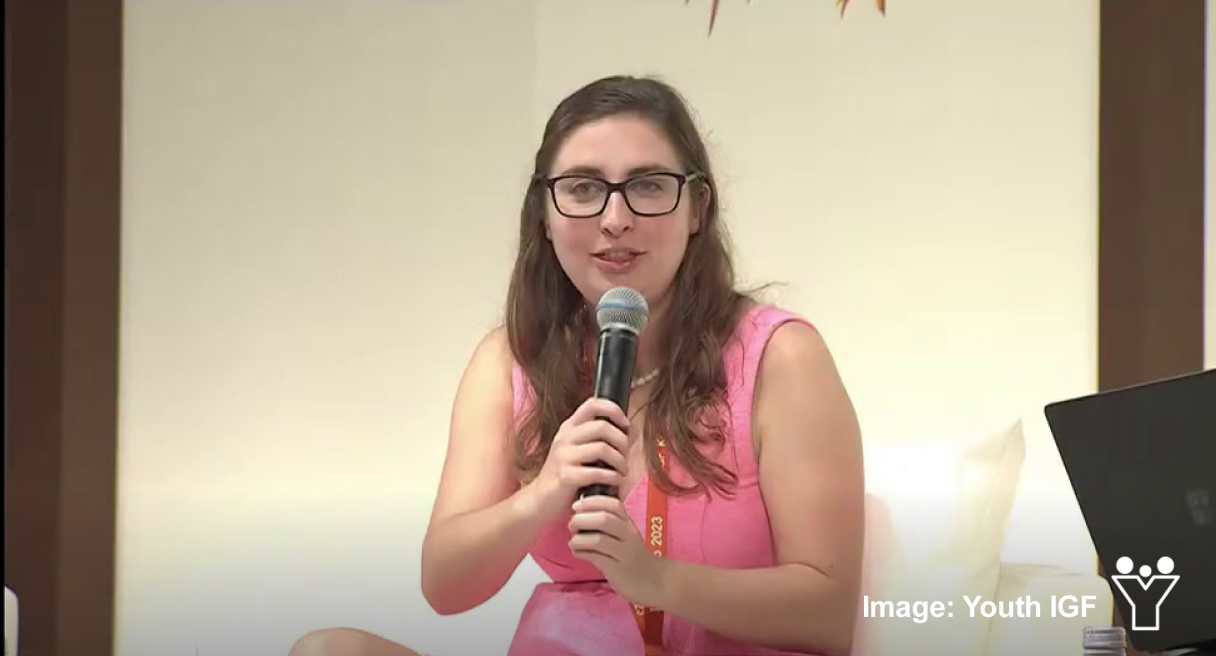
Rosalind Kenny Birch: "Fragmentation at the governance layer primarily relates to the interaction between governance and standard bodies. When these bodies do not coordinate inclusively, it can and does result in fragmentation. The fragmentation can manifest in siloes or duplicative discussions, and exclusions of specific groups from participation, resulting in decisions being taken without consensus from the multi-stakeholder community. It is important to improve coordination between existing internet governance bodies to help address perceived or real gaps in these spaces." — Rosalind Kenny Birch, International Policy Advisor, UK Government.
Belgium: "When people are talking about internet fragmentation, we can either form a basket that we can label as fragmentation of the Internet user experience, fragmentation of internet governance and fragmentation of the technical." — Wim Degezelle, Consultant Internet Governance and Policy Framework.


Australia: “Part of the challenge is that the definition of internet governance itself is under challenge. Do we think that it's just about the governance of the Internet, which is a distinction that's been made, or is it the governance on the internet or is it these broader questions of digital governance that get often tacked onto the infrastructure level discussions today?" — Jordan Carter, Internet Governance and Policy Director, AuDA.
UNESCO: "The user experience fragmentation is maybe the mist interesting type just because it has this positive side when users are served with custom features and content, and the negative side when users are prevented from accessing certain features, and service and content. And the discussion paper is actually concerned very much primarily with the negative side, which is essentially about how these features, these mechanisms actually impose barriers that isolate or trap users into an information environment from which they can't really escape." —Marielza Oliveira, Director, Communications and Information Sector's Division for Digital Inclusion, UNESCO.

DAY 3 - WEDNESDAY
Brazil: "We must fully embrace diversity to improve a multi-stakeholder participation which is essential for the future of the internet. Gender diversity as many other forms of diversity are crucial to driving our governance Community." — Renata Mielli, Coordinator, CGI.br.
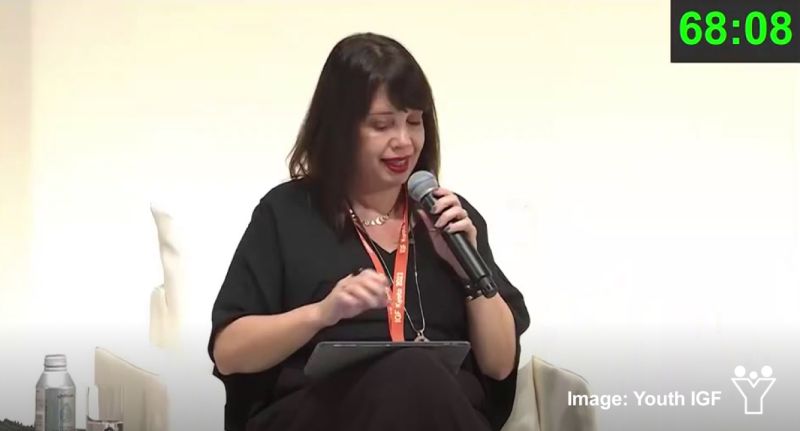

Australia: "Let me talk about the centrality of the internet to our day to day lives. If anyone thought that that wasn't the case until 2020, they got a brutal reminder of that in the course of the COVID19 pandemic. And whether it's the Internet itself or the services and applications that we rely on that run on top of it, this digital realm, this internet realm is central to our lives, which is why it's so important. So important that the secretary general identified it as one of the two major challenges facing the planet along with the climate crisis." — Jordan Carter, Internet Governance and Policy Director, AuDA.
Lise Fuhr: "One of the most important aspects of the leadership panel lately and it will develop in the coming years has been to set a framework of the Internet we want. And we see this as forming a basis or a series of goals or objectives to support the development of an open secure right respecting internet across the globe." — Lise Fuhr, Member of the IGF Leadership Panel, Director, ETNO.
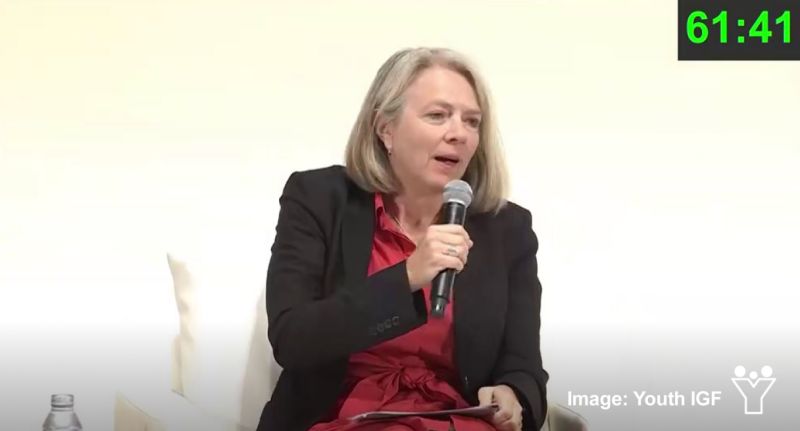
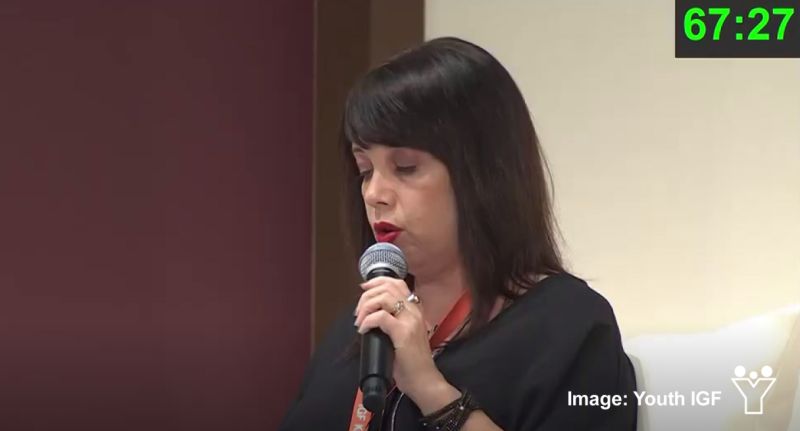
Brazil: "Today's Internet is very different from what it was 20 years ago. It has expanded globally, irreversible and penetrated people's lives. It has grown technically stronger becoming more resilient and faster than we ever imagined. It has been a critical infrastructure for economic, social and cultural development." — Renata Mielli, Coordinator, CGI.br.
India: "We in our network and organizations believe that the crisis of digitality is entirely a crisis of its governance. What we need is a new articulation of Rights that accounts for people's development sovereignty in the digital paradigm. A new narrative of data flows with rights, including the right to connectivity and data public goods, the right to be forgotten, the right to be represented or not in digital systems. Data rights for algorithm work environments and so on. We need a people's data and AI constitutionalism at the international level." — Anita Gurumurthy, Executive Director, IT for Change, India.

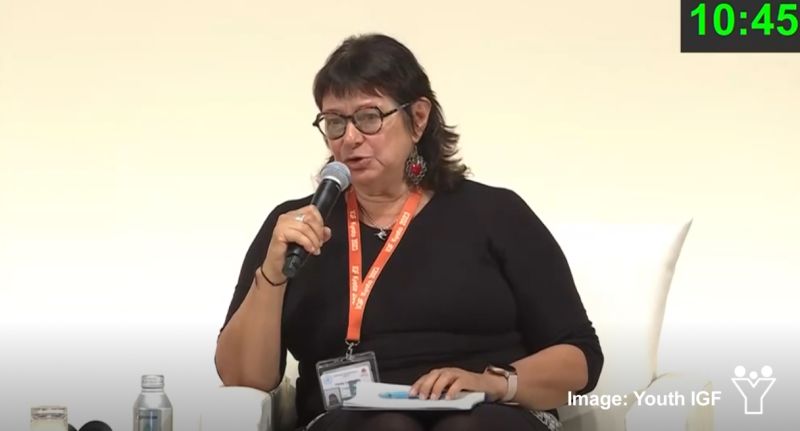
Costa Rica: "Digital technologies working for climate change, natural resources and sustainability must be contextualized. Data models must be correlated with power relationship land distribution, economic dynamics, citizen’s participation, and women action. Care for each person, for the collectives and planetary care must be at the center of data process and devices that are being used for environmental sustainability." — Kemly Camacho, Co-founder, Cooperative Sula Batsu .
Lise Fuhr: "The United Nations reminds us that 2.6 billion people are still offline and we are actually far from reaching the SDGs and from harnessing the benefits of digital, which should get us there, and we think this is a virtual circle. The uptake and impact of the internet is now a whole society matter." — Lise Fuhr, Member of the IGF Leadership Panel & CEO, ETNO.

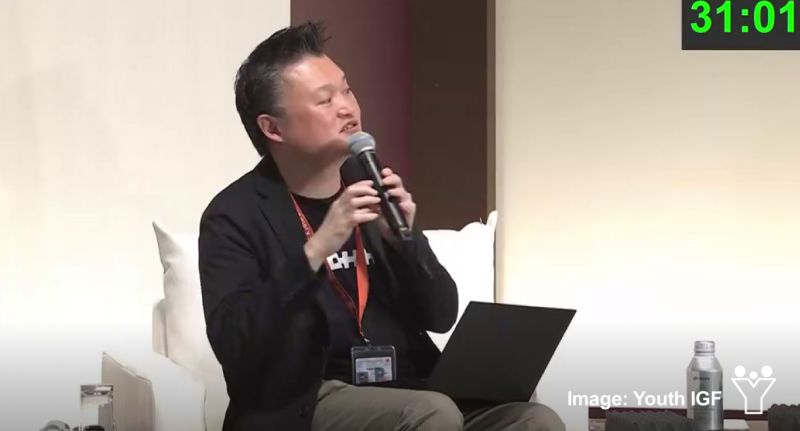
ICANN: "Digital transformation and digital technologies have great potential in helping address climate change and perhaps the questions is how we can do more and waste less. A key to both mitigating the damage and unlocking the potential probably lies in better understanding complex and counterintuitive relationship between the use of these technologies and their impact on the environment." —Edmund Chung, CEO, DotAsia and Board Member at ICANN .
APC: "Digital policies that aren't environmentally sustainable won't be sustainable in any other terms either, so we should be aiming for an inclusive and sustainable environment policy. We need to consider not just direct impacts from the way we make and use digital resources but indirect impacts arising from new types of activity like e-commerce and the rebound effects that arise when efficiency improvements increase consumption and societal impacts like the changes in the way we live and work and play." — David Souter, International ICT and development expert, APC.
.jpg?width=800&height=431&name=photo_2023-10-12_20-14-53%20(2).jpg)
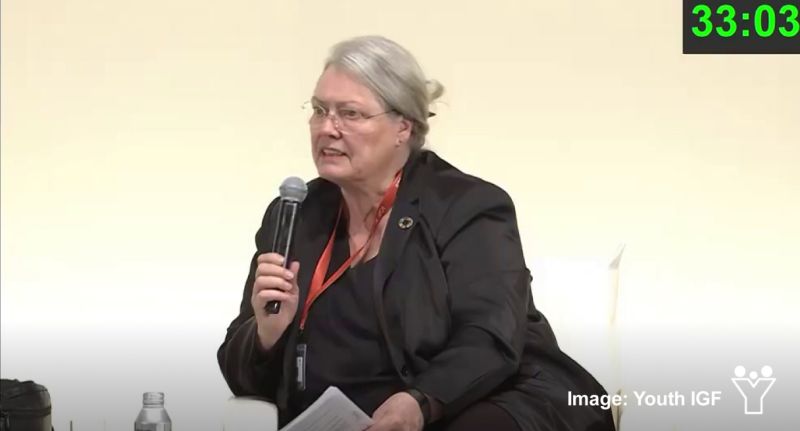
IEEE: "We have done a lot of damage. We have to undo this damage. This doesn't mean that they will be actually the same way they used to be but they have to be healthy ecosystems. On safeguarding and achieving a truly long term sustainable planetary biosphere, we need to address global warming or climate change which means achieve a net zero GHE emissions and reduction of greenhouse gases that are currently essentially unbalancing the composition of our atmosphere." — Maike Luiken, IEEE Power & Energy Society and Chair of the Planet Positive 2030 Initiative.
East Timor: "In Timor-Leste, the internet is low speed. The average download of the internet itself is only around 4.5 megabytes per second. That is very low compared to other countries. We have limited infrastructure including access to high speed broadband in rural areas. It hinders widespread interned adoption." — Dulce Soares, Member of the National Congress for Timorese Reconstruction.
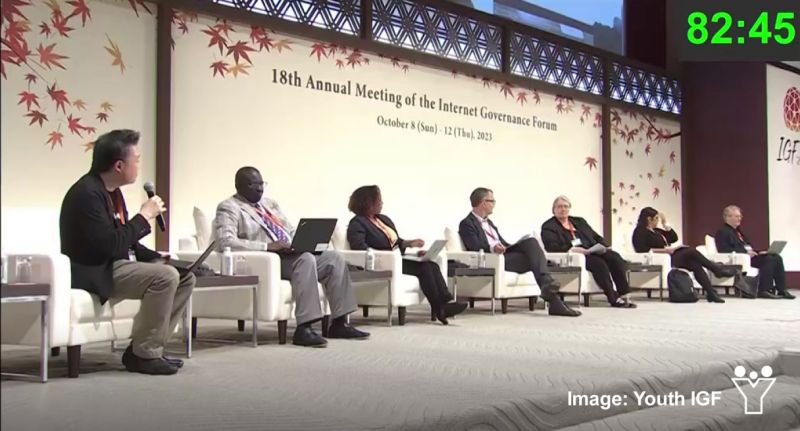

Costa Rica: "We as women and as communities demand for participation in the digital technologies for accessible environment, climate change, natural resources management processes that are going to be developed in our context since the beginning of developing collective data models, designing technology solutions together, ideating processes to integrate care as the environmental solutions, etc. If they are collecting data, from our territories this data is our property; we claim ownership because they are talking about our lives." — Kemly Camacho, Co-founder, Cooperativa Sulá Batsú.
UN : "When we look at the statistics, digital technologies contribute 1 to 5% to the green gas emissions and to the energy consumption it is between 5 and 10%. It is a lot. However according to several studies this digital technologies can reduce this greenhouse gas emissions to 20% by 2030." — Dr. Mactar Seck, Chief of Section Innovation and Technology, United Nations Economic Commission for Africa.
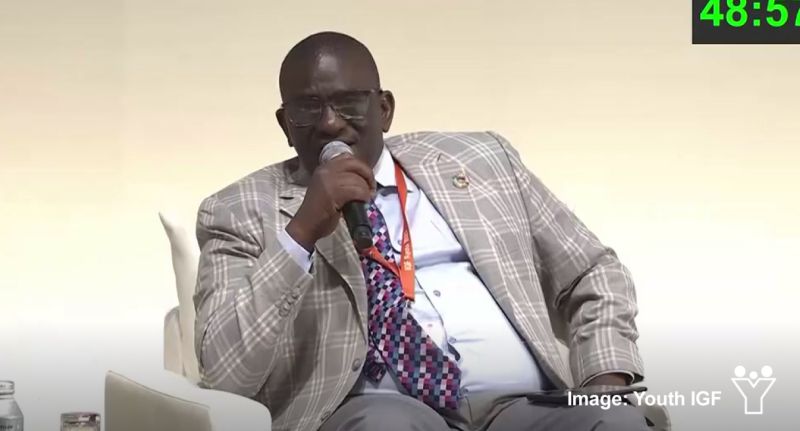
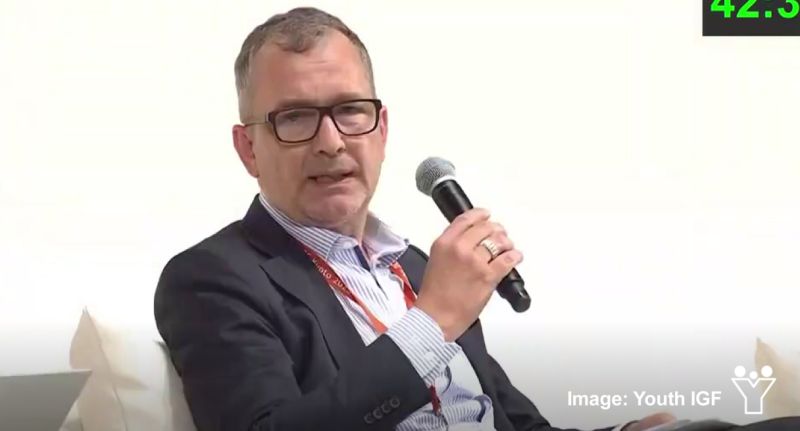
GIZ: "We had an initiative with the The World Bank Bank and International Technological University on standards for green data centers. It was a very useful exercise sitting with experts, and the result is a practitioner’s guide for Green Data Centers that was launched recently in Nairobi on the occasion of the Africa climate summit. It was very welcome and I would want us to invest more." — Axel Klaphake, Director Economic and Social Development, GIZ.
DAY 4 - THURSDAY
IGF participant: "Last year we had 2.7 billion people not connect to Internet, this year it is 2.6 billion. This means in 25 years we are going to give internet to everyone, which I guess is a failure of conscience for the agreed. We need to stop it. If I can get access to internet at a cafe at the airport free advertising, why can't we give internet to the 2.6 billion people on those models? We have a high level panel for AI but not a high level panel for 2.6 billion people in mixed priorities." — IGF Participant, Open Mic session.

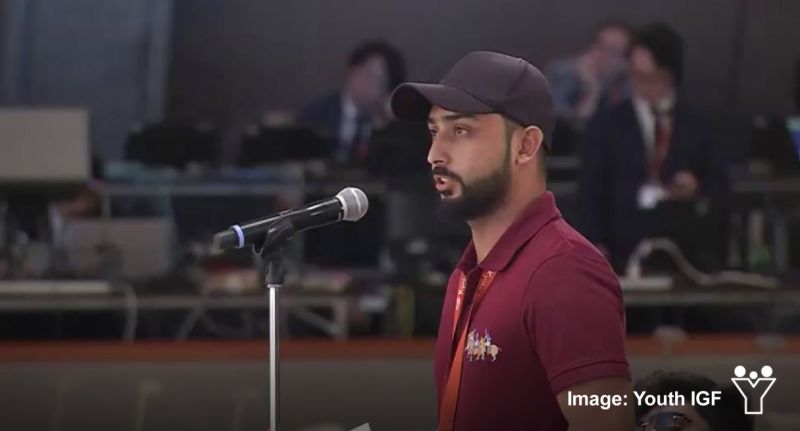
IGF participant: "I find this forum to be an important step towards consensus and collaborations for the evolved Internet; we won’t see this evolution come to pass as long as we maintain tones about marginalized civilian populations that are actively oppressed by a lack of internet access. Especially those that have had their voices removed from the global stage as a result of weaponised shutdowns and senseless wars." — IGF Participant, researcher focused on disaster resilient internet infrastructure, Open Mic session.
Diplo: "I am quite excited to be involved in this project of using artificial intelligence to map the base amount of knowledge that we have accumulated over the years." —Markus Kummer, Senior advisor, Diplo Foundation.
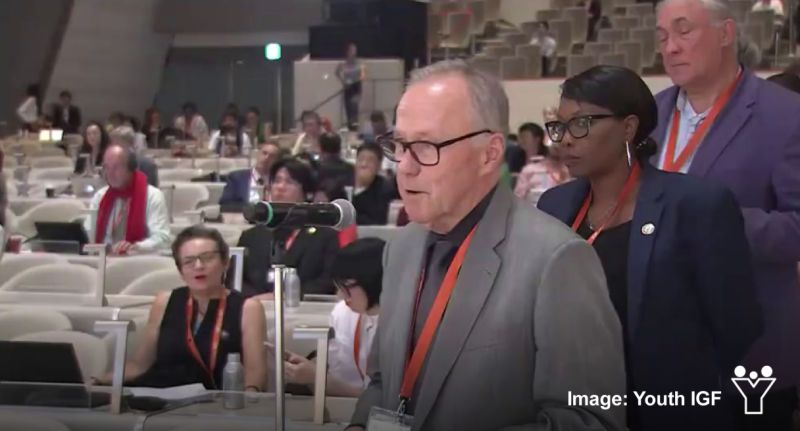

Dominican Republic: "In the name of inclusivity, I would like to see more Latin Americans participating in IGF and also I would like to see more people with disabilities because if we want to make everything inclusive, we are talking about internet for all, we cannot say we want one internet one people and yet we don't have the people who are supposed to make the decision and we don't see them." — IGF participant, Open Mic session.
ISOC: "At Dynamic coalition we have produced reports, where are they? They are not recognized by IGF, they are not on Internet Governance Forum Secretariat website. On the DC Advisory website, they will be there. But nobody knows these reports exist yet they bring tangible outputs to this IGF so how can we improve this and what sort of criteria should the DCs meet? And that will provide new focus for tangible out comes." — Wout de Natris, IGF participant, Open Mic session.
.jpg?width=800&height=431&name=photo_2023-10-13_14-44-26%20(2).jpg)

Netherlands: "I want to honor the fact that this conference had young people in a way that I have longed for because the experts in the room oftentimes now are the young people in the digital realm." — Deborah Allen, the Hague.
Brazil: "Here wasn't enough representation for vulnerable people. There are different people with different bodies. These are the bodies most impacted by technologies. We need to allow these people to be part of this environment, to understand internet governance and we need to take part in all these discussions." — Nelson Guirmes.
.jpg?width=800&height=431&name=photo_2023-10-13_14-44-27%20(2).jpg)
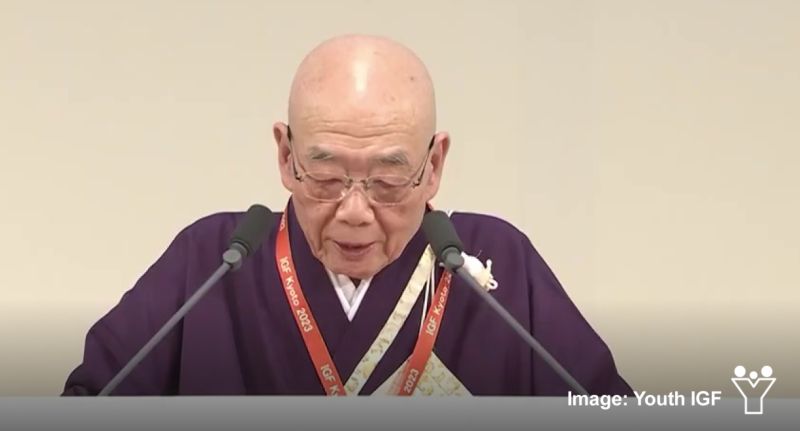
Japan: "Everything in this world is made up of connections; all life in this world is supported by the lives of those around us. I have high expectations for the internet as one of the bonds that support such lives and I wish for further development." — Mori Seihan, Chief Abbot.
Japan: "The Internet is indispensable infrastructure for our daily lives, and economic and social activities and the landscape surrounding the internet evolves rapidly. Generative AI has been a major topic for the past year and rightfully was one of the central topics at this meeting." — Koichi Watanabe, State Minister for Internal Affairs and Communication, Japan.
.jpg?width=800&height=431&name=photo_2023-10-13_14-44-28%20(2).jpg)
.jpg?width=800&height=431&name=photo_2023-10-13_14-44-29%20(2).jpg)
Japan: "The Internet Governance Forum Secretariat is the most important forum in terms of internet policy. I am grateful to have been able to host this important forum in Kyoto. We have discussed cyber security, AI, emerging technologies in relation to internet governance. With this discussion I hope internet will develop further in order to achieve the SDGs, with the concept of leaving no one behind." — Daisaku Kadokawa, Mayor of Kyoto City.



